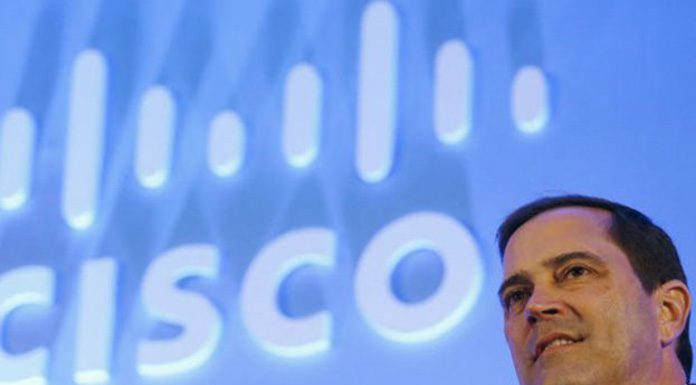With an aim to ease the complexity of managing containerized applications in a hybrid cloud environment which has become a new normal for enterprises of all sizes as they host data heterogeneously in cloud and on-premise, Cisco has launched a new solution built for Amazon Web Services (AWS) that it says will make running new containerized applications simple.
The company said its newly launched Cisco Hybrid Solution for Kubernetes on AWS will it easy for customers to run production-grade Kubernetes on-premises. Cisco informed that this is achieved by configuring on-premises Kubernetes environments to be consistent with Amazon Elastic Container Service for Kubernetes (Amazon EKS) and by combining Cisco's networking, security, management and monitoring software with AWS' cloud services.
In a blog post, Kip Compton, senior vice president, Cloud Platform and Solutions at Cisco explained that enterprises are using public clouds platforms for rapidly developing and deploying applications, yet most of them have their own data centers that house important workloads. So the Containers and Kubernetes have emerged as key technologies to give developers more agility, portability, and speed — both in how applications are developed and in how they are deployed.
According to him, despite that enterprises have been struggling to realize the full potential of these technologies because of the complexity of managing containerized applications in a hybrid environment. Organizations need to work across siloed environments, technologies, teams, and vendors to glue all the parts of a hybrid infrastructure together themselves. Properly configuring Kubernetes to deploy applications on-premises and in the public cloud requires custom integrations that can be an operational challenge.
He said that Cisco new solution built for Amazon Web Services (AWS) will make running new containerized applications simple. “The Cisco Hybrid Solution for Kubernetes on AWS enables customers to securely deploy, connect, and monitor containerized applications in Kubernetes clusters consistently across private data centers and the AWS cloud. Customers can now get the best out both their cloud and on-premises environments with a single solution and enterprise-class support,” said Compton.
“Today, most customers are forced to choose between developing applications on-premises or in the cloud. This can create a complex mix of environments, technologies, teams and vendors. But they shouldn't have to make a choice,” said Kip Compton, senior vice president, Cloud Platform and Solutions at Cisco. “Now, developers can use existing investments to build new cloud-scale applications that fuel business innovation. This makes it easier to deploy and manage hybrid applications, no matter where they run. This allows customers to get the best out of both cloud and their on-premises environments with a single solution.”
“More customers run containers on AWS and Kubernetes on AWS than anywhere else,” said Terry Wise, Global Vice President of Channels & Alliances, Amazon Web Services, Inc. “Our customers want solutions that are designed for the cloud and Cisco's integration with Amazon EKS will make it easier for them to rapidly deploy and run containerized applications across both Cisco-based on-premises environments and the AWS cloud.”
The Cisco Hybrid Solution for Kubernetes on AWS will be available in December 2018. It will be provided as both a software-only solution requiring only the Cisco Container Platform, or a hardware/software solution with the Cisco Container Platform running on Cisco HyperFlex. The software is licensed in one-, three- and five-year subscriptions. Pricing for software-only subscriptions will start at approximately $65,000 per year for a typical entry-level configuration. On AWS, customers pay $0.20 per hour for each Amazon EKS cluster that they create in addition to the AWS resources (e.g. Amazon EC2 instances or Amazon Elastic Block Store volumes) they create to run Kubernetes worker nodes.
The company said that new solution will be sold by Cisco and its global partner network. The platform will be supported by Cisco's technical support. Cisco DevNet will also provide an online resource for developers to trial and benchmark hybrid cloud applications using the solution.











